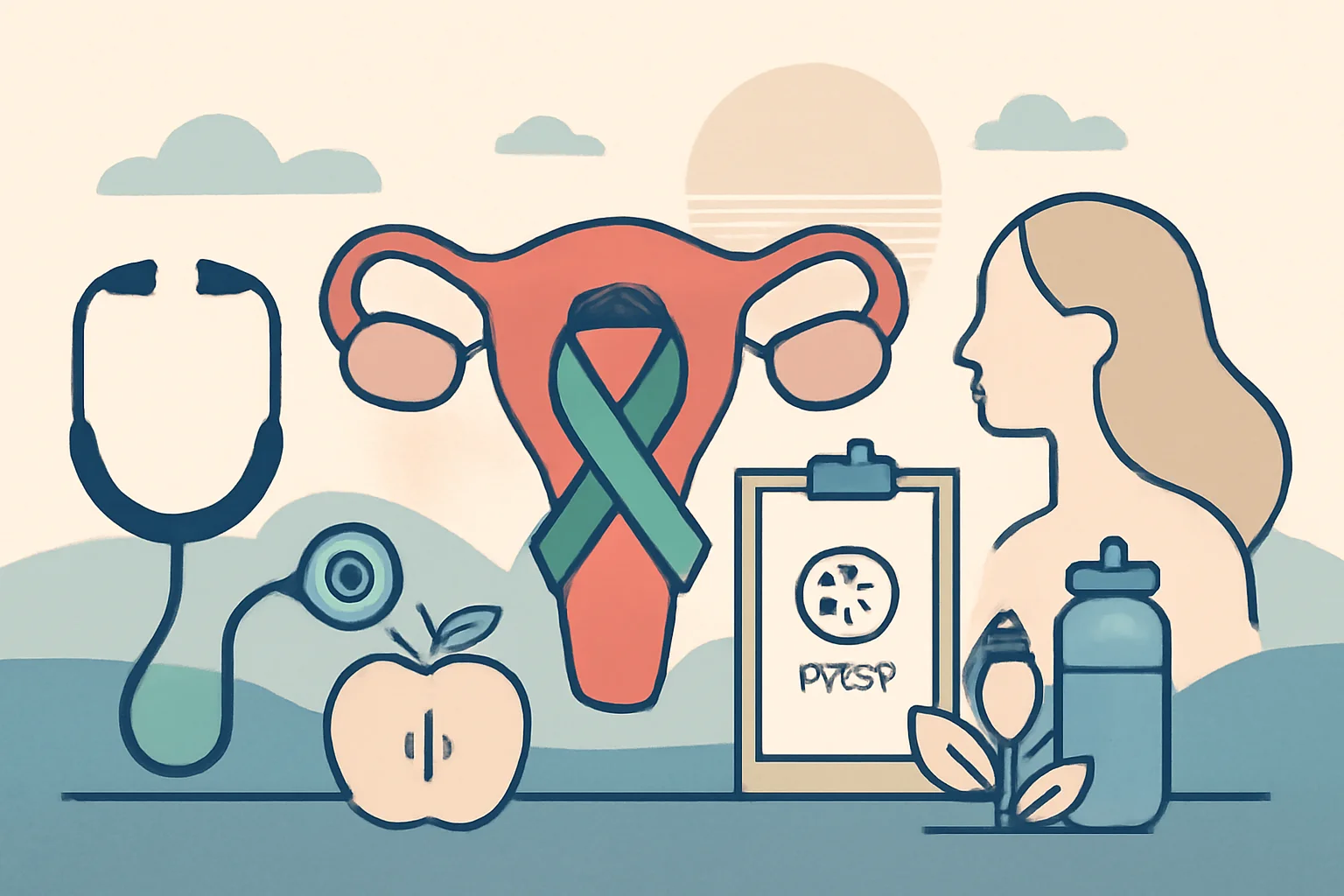
PCOS: Symptoms, Treatment and the Importance of Lifestyle Changes
The polycystic ovary syndrome (PCOS) is one of the most common hormonal disorders in women, which can cause numerous health problems. This complex condition is associated with various symptoms that affect the menstrual cycle, fertility, and hormonal balance. The exact cause of PCOS is still not completely understood, but both genetic and environmental factors may play a role. The disruption of hormonal balance in the female body is often associated with insulin resistance, which can lead to further complications.
Women suffering from PCOS often experience symptoms such as acne, weight gain, and hair loss. The syndrome can represent not only a physical burden but also a psychological one, as women’s self-esteem and quality of life can decrease due to the symptoms. Proper diagnosis and treatment are essential for managing PCOS. It is important for women to be aware of the syndrome’s symptoms so they can seek medical help in a timely manner. PCOS is a condition that affects many women’s lives, and increasing awareness is key to ensuring appropriate treatment.
The Symptoms and Diagnosis of PCOS
The symptoms of PCOS encompass a wide range, and these symptoms can manifest to varying degrees. One of the most common phenomena is menstrual irregularity, which can include irregular periods, delayed cycles, or even a complete absence of menstruation. Additionally, women often experience increased hair growth, particularly on the face and body, which is a consequence of hormonal imbalance.
Acne and oily skin are also characteristic symptoms that develop due to hormonal changes. Due to the insulin resistance commonly associated with PCOS, many women experience weight gain even if they do not change their diet or physical activity levels. Furthermore, hair loss, thinning hair, and hair thinning may also occur.
The diagnosis is typically established through medical examinations and a detailed discussion of symptoms. The doctor may perform a physical examination and various laboratory tests, such as measuring hormonal levels and conducting an ultrasound to assess the condition of the ovaries. The doctor can diagnose PCOS based on the Rotterdam criteria, which includes three main aspects: menstrual irregularities, hyperandrogenism, and polycystic ovaries.
Treatment Options for PCOS
The treatment of PCOS is generally personalized, taking into account the symptoms and the woman’s lifestyle. Doctors often recommend diet and exercise as the first steps in managing PCOS. A healthy diet rich in fiber, vitamins, and minerals can help restore hormonal balance.
Physical activity also plays a significant role in treatment. Regular exercise can contribute to weight loss, which may help reduce insulin resistance and improve the menstrual cycle. Doctors often recommend a combination of cardiovascular and strength training exercises for optimal results.
Medication options include hormonal contraceptives, which can help regulate the menstrual cycle and treat acne. Insulin-sensitizing medications, such as metformin, can also be effective in managing PCOS, particularly in women who struggle with insulin resistance. Additionally, anti-androgen medications, such as spironolactone, can help reduce excessive hair growth.
The Role of Nutrition in PCOS Management
Nutrition plays a crucial role in managing PCOS, as a proper diet can contribute to restoring hormonal balance and reducing symptoms. Women living with PCOS are advised to follow a balanced diet rich in fiber, healthy fats, and proteins. Foods with a low glycemic index, such as whole grains, vegetables, and legumes, can help stabilize blood sugar levels, thereby reducing insulin resistance.
Minimizing the consumption of processed foods, sugary beverages, and high-fat foods is also important. These foods can cause rapid spikes in blood sugar, leading to weight gain and worsening of PCOS symptoms. Women should also pay attention to their daily caloric intake, as weight loss can significantly impact the management of PCOS.
Vitamins and minerals, such as vitamin D, B vitamins, and magnesium, may also be important in managing PCOS. In addition to proper nutrition, the use of dietary supplements can be beneficial, but medical advice is essential.
The Psychological Effects of PCOS
PCOS not only has physical effects but also psychological impacts on women’s lives. Women living with the syndrome often experience anxiety, depression, and low self-esteem due to the symptoms and fertility issues. The irregularity of menstrual cycles and the unpleasant symptoms of excessive hair growth can contribute to a decrease in female identity and self-esteem.
The role of women’s communities and support groups can be significant for women struggling with PCOS. Sharing experiences and discussing common issues can help alleviate psychological burdens. It is important for women to not feel alone in their problems and to be informed about their options related to PCOS.
Psychological support and therapy can also be helpful, especially for those carrying severe psychological burdens. Incorporating positive thinking, stress management techniques, and relaxation practices into daily life can help maintain mental health.
PCOS is thus a complex condition that requires a multifaceted approach to treatment. Proper nutrition, exercise, medication, and psychological support can all contribute to reducing symptoms and improving women’s quality of life.
**Disclaimer:** This article is not to be considered medical advice. In case of health issues, everyone should follow their doctor’s advice.

